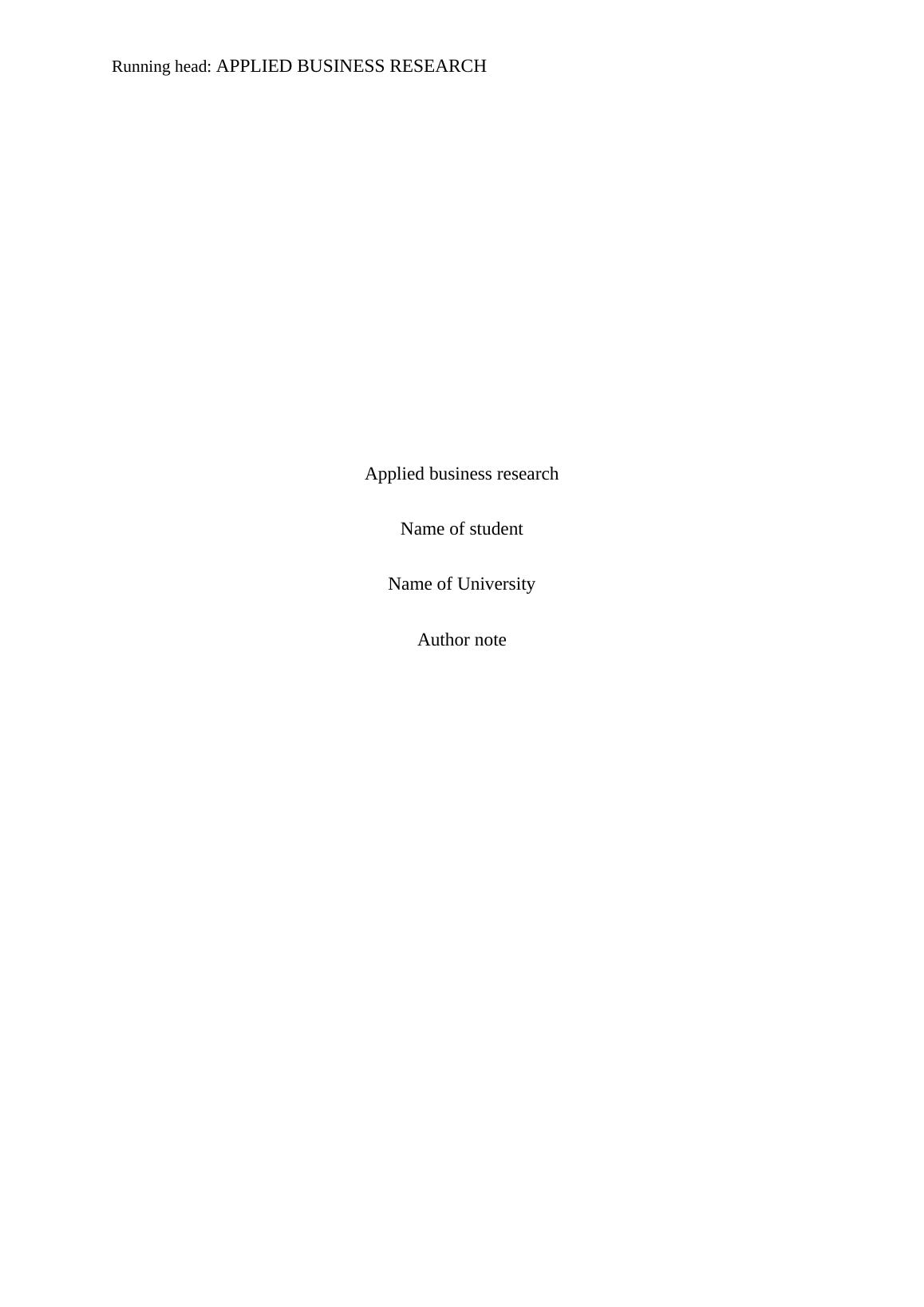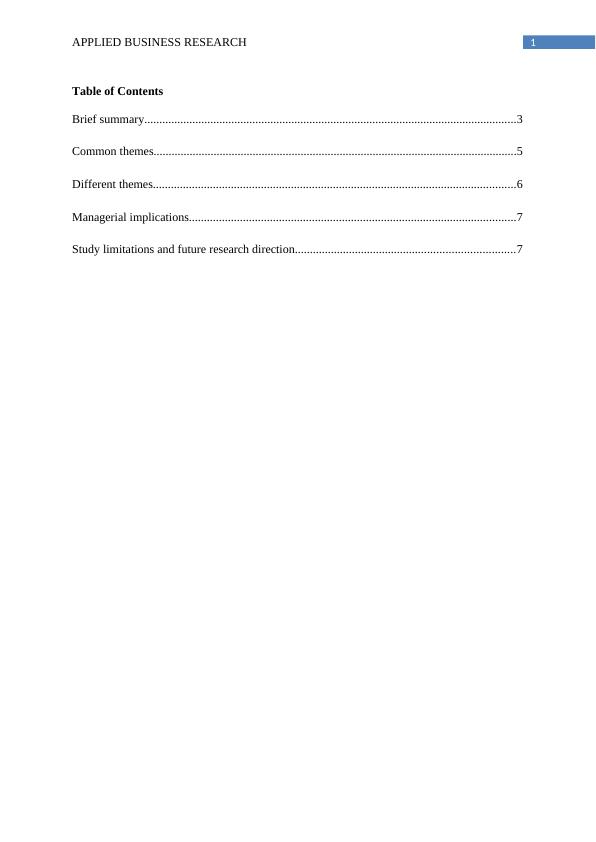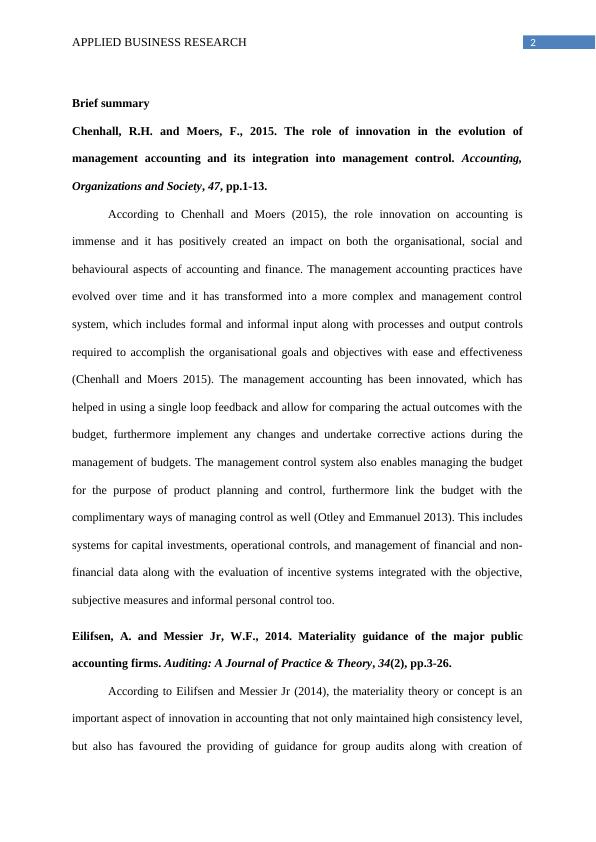The Role of Innovation in Management Accounting and its Impact on Business Performance
Added on 2023-04-21
10 Pages2321 Words325 Views
End of preview
Want to access all the pages? Upload your documents or become a member.
Managerial Accounting: Cost, Decision Making, and Income Calculation
|17
|4592
|66
Management of Corporate Innovation at Fonterra Co-Operative Group Limited
|10
|2975
|382
EyeOn Pharmaceuticals: Research and Development and Accounting Process
|4
|1085
|61



